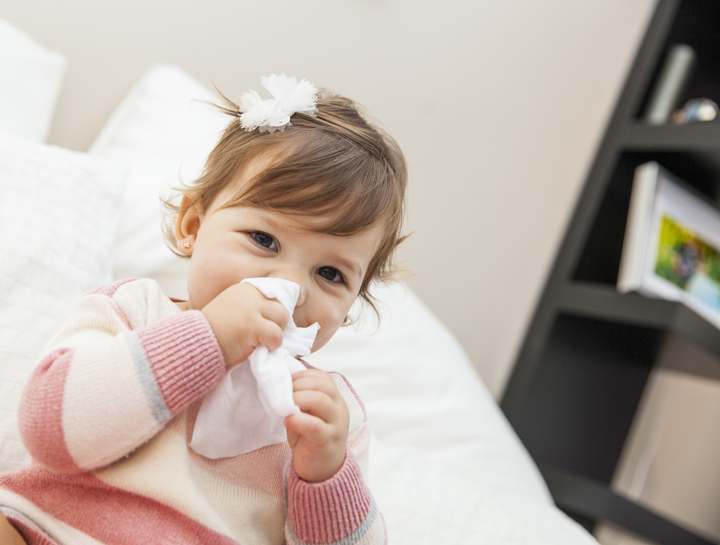When it comes to the health of our little ones, parents often tread with caution, especially when they fall ill. Cold and flu are common occurrences, even among babies, and while adults have a plethora of over-the-counter medications to choose from, the options for babies are more limited and require careful consideration. In this article, we’ll delve into the world of cold and flu medicine for babies, exploring what you need to know to navigate this aspect of infant healthcare safely and effectively.

Understanding Cold and Flu in Babies:
Babies are particularly susceptible to cold and flu viruses due to their developing immune systems. What might seem like a mild illness in an adult can quickly escalate in severity for a baby. Symptoms of a cold or flu in babies may include nasal congestion, coughing, sneezing, fever, irritability, decreased appetite, and difficulty sleeping. While these symptoms can be distressing for both the baby and the parents, it’s essential to approach treatment with caution, particularly concerning medication.
The Risks of Over-the-Counter Medications:
Unlike adults, babies have specific limitations when it comes to the types of medications they can safely take. Over-the-counter cold and flu medications designed for adults are generally not suitable for babies under the age of two. These medications can pose serious risks to infants, including overdose, adverse reactions, and potential long-term health effects. Therefore, it’s crucial to consult with a healthcare professional before administering any medication to a baby, especially those under the age of two.
Safe Alternatives for Symptom Relief:
Fortunately, there are safer alternatives for managing cold and flu symptoms in babies. One of the most effective methods is saline nasal drops or spray to alleviate nasal congestion. These solutions help to thin mucus, making it easier for babies to breathe and reducing discomfort. Additionally, using a bulb syringe to gently suction mucus from your baby’s nose can provide relief.
Humidifiers are another valuable tool for easing congestion and soothing irritated airways. Adding moisture to the air helps to loosen mucus and relieve coughing. However, it’s essential to clean humidifiers regularly to prevent the growth of mould and bacteria, which can exacerbate respiratory issues.
When it comes to reducing fever and discomfort, infant acetaminophen or ibuprofen can be used under the guidance of a healthcare professional. It’s crucial to carefully follow dosing instructions based on your baby’s age and weight to avoid complications. Never give aspirin to a baby or young child, as it can cause a rare but serious condition called Reye’s syndrome.
The Importance of Rest and Hydration:
In addition to symptom management, ensuring that your baby gets plenty of rest and stays hydrated is vital for recovery. Offer frequent breastfeeding or formula feeding to prevent dehydration and provide comfort. If your baby is old enough to consume solids, offer simple, easy-to-digest foods like applesauce, mashed bananas, or vegetable purees.
Encourage restful sleep by maintaining a comfortable sleep environment and sticking to your baby’s regular sleep routine as much as possible. Elevated sleep positions, such as using a wedge or placing a rolled-up towel under the mattress, can help ease congestion and promote better breathing during sleep.
When to Seek Medical Attention:

While most colds and flus in babies resolve on their own with home care, there are instances where medical attention is necessary. If your baby is under three months old and develops a fever, it’s essential to seek immediate medical attention, as this can indicate a potentially serious infection. Similarly, if your baby shows signs of dehydration, such as decreased urine output, dry mouth, or sunken fontanelle (soft spot on the top of the head), contact your paediatrician promptly.
Other red flags that warrant medical evaluation include difficulty breathing, persistent vomiting, lethargy, or a fever lasting more than a few days. Trust your instincts as a parent, and don’t hesitate to contact your healthcare provider if you’re concerned about your baby’s health.
Preventing the Spread of Illness:
In addition to providing care for your sick baby, it’s essential to take steps to prevent the spread of illness to other family members and caregivers. Practise good hand hygiene by washing your hands frequently with soap and water, especially before and after caring for your baby. Avoid close contact with your baby if you’re feeling unwell, and encourage other household members to do the same.
Keep your baby’s environment clean and sanitised, particularly frequently-touched surfaces like doorknobs, light switches, and toys. Use disinfectant wipes or sprays labelled as safe for use around infants to reduce the risk of contamination.
Conclusion:
Caring for a baby with a cold or flu can present challenges, but armed with the right knowledge and resources, you can help your little one feel better and recover swiftly. Prioritise safety in treatment decisions, and always seek guidance from healthcare professionals before administering any compounding medications to your baby. By offering comfort, ample rest, and plenty of fluids, you can bolster your baby’s immune system as it combats illness. With diligent care and attention, your baby will soon return to their cheerful, healthy self.

